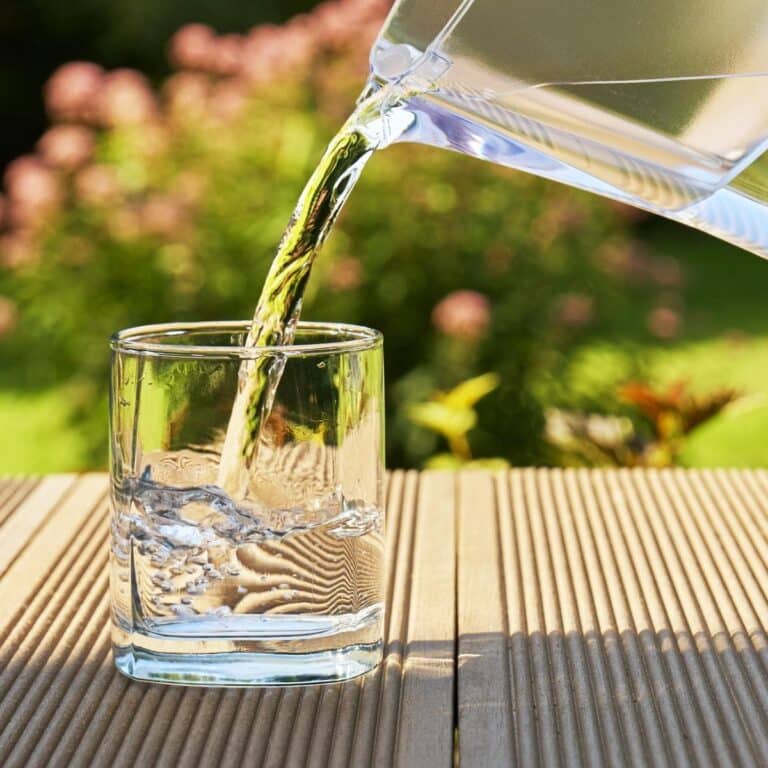Is Star Fruit Bad For Kidneys
Star fruit is a unique and nutritious snack that can make a flavorful addition to any diet. But if you have kidney disease, star fruit can be dangerous and even deadly.
It looks and sounds like an innocent and tasty option for to add in your fruit basket, fruit salad, or summer drink, but it is actually a very dangerous and toxic substance that can cause a disturbance in patients who have kidney disease.
It's ingestion is prohibited for those who have kidney issues due to the presence of two dangerous and life-threatening neurotoxins and nephrotoxins present in the tropical fruit (kidney friendly fruits).

In this article, we'll explore the potential effects and risks of star fruit for individuals with kidney disease. We'll discuss the role of oxalic acid and caramboxin, and the science behind star fruit toxicity, and the common symptoms of star fruit intoxication. We'll also provide information about alternative fruits that are safe for kidney health.
By the end of this article, you'll have all the information you need to make an informed decision about whether or not to include this fruit in your diet (renal diet education handout).
Jump to:
- Key Takeaways
- Star Fruit: A Brief Overview
- Potential Risks for Individuals with Kidney Disease: Caramboxin
- The Role of Oxalic Acid
- Impact of Star Fruit Consumption on Kidney Function
- Why Renal Health Professionals Advise Against Star Fruit
- Common Symptoms of Star Fruit Intoxication in Kidney Disease Patients
- Star Fruit and Dialysis: A Complex Relationship
- Alternative Fruits Safe for Kidney Health: Substitutes
- FAQs for Star Fruit
- Eating Star Fruit When You Have Kidney Disease Is Very Dangerous
Key Takeaways
- Star fruit contains oxalic and caramboxin acids, which can be fatal if accumulated in the blood of renal patients.
- Star fruit ingestion is prohibited for those who have kidney disease as it worsens or can cause star fruit induced acute renal failure or acute kidney injury.
- Apples, pineapples, pears, and citrus fruits are safe alternatives for those with kidney disease.
- This fruit can cause neurotoxicity and nephrotoxicity in those with damaged kidneys, which can be life-threatening.
For More Recipes and Ideas --->> Get Your Free Meals and Recipes That Are Perfect for Pre-Dialysis Diets, Pre-Dialysis with Diabetes, or Dialysis Diets.
Star Fruit: A Brief Overview
Star fruit is a bright and interesting fruit that is native to tropical regions of Southeast Asia including Sri Lanka and South America including Brazil. Also known as Averrhoa carambola (A. carambola) or Carambola, it has an edible skin and, when cut into slices, resembles a five-point star. It is sweet, sour, and has a somewhat citrus-like flavor.
They come in yellow or green colors, and are sweeter in their larger variety, with smaller versions of the fruit retaining a sour taste, much like a lemon. While it has gained popularity all over the world for its fun shape and uses, regardless of the type of star fruit, the effects of star fruit can be life-threatening to those with damaged kidneys or those who have trouble filtering out toxins.
While star fruit contains many important nutrients and has a range of culinary uses, it is important to be aware of its potential dangers for those with kidney disease. Star fruit is a good source of fiber and vitamin C, as well as several antioxidant compounds. The ripe fruit is also low in calories, making it a great snack option for those watching their weight (healthy eating with a dialysis diet plan).
However, this fruit is also rich in oxalic acid and caramboxin acid, which can be fatal if accumulated in the blood of renal patients. These toxins can be obtained from ripe and unripe star fruit, star fruit juice or carambola juice, star fruit extracts, extract from leaves of star fruit, and other forms of which it may be prepared.
Patients with chronic kidney disease should avoid ingestion of star fruit and consult with their doctor before trying it.
It is also important to remember that star fruit should always be consumed in moderation. Excessive consumption can lead to life-threatening neurotoxins and nephrotoxins. For those with healthy kidneys, however, star fruit can be a tasty and healthy addition to their diet.
Potential Risks for Individuals with Kidney Disease: Caramboxin
Consuming star fruit can be dangerous for individuals with kidney disease, especially those with chronic kidney disease (CKD). Star fruit contains a harmful substance called caramboxin, which is not properly eliminated by the kidneys in people with kidney problems. This can lead to increased levels of caramboxin in the body, allowing it to affect the brain and nervous system.
The caramboxin toxin can cause excitability, seizures, and damage to the nerves. It interferes with the normal communication between brain cells, leading to problems with brain function. People with kidney disease who eat star fruit may experience symptoms like hiccups, vomiting, confusion, agitation, and even prolonged seizures. In severe cases, it can even be life-threatening.
The risk comes from a toxin in star fruit called caramboxin, which affects the brain and nervous system. The toxin can't be properly eliminated by the kidneys in people with kidney disease, so it builds up in the body and causes harm.
It's important for healthcare professionals, especially nutritionists, to warn patients with kidney disease about the dangers of eating star fruit. Even people with normal renal function should avoid it, as it can still be harmful.
Overall, it's best for individuals with kidney disease to stay away from star fruit completely. The potential risks outweigh any potential benefits. If you have any concerns or questions about your diet and kidney health, it's important to speak with your healthcare provider for personalized advice.

The Role of Oxalic Acid
Oxalic acid is a substance found in star fruit that can have an impact on kidney health. When we consume this fruit, the oxalate content in it can cause problems for some people. In certain individuals, eating this fruit can lead to issues with the kidneys, known as star fruit nephrotoxicity.
The nephrotoxic effect means that the oxalic acid in star fruit can cause harm to the kidneys leading to acute oxalate nephropathy. It can lead to the deposition of calcium oxalate crystals in the tiny tubes within the kidneys. This can then cause damage to the kidney tissue, leading to conditions like acute kidney damage, acute tubular necrosis, and interstitial nephritis.
Acute tubular necrosis is a condition where the cells in the kidney tubules die, which can disrupt the normal functioning of the kidneys. Interstitial nephritis is inflammation that occurs in the spaces between the kidney tubules. Both of these conditions can affect the kidneys' ability to filter waste products from the blood and maintain the right balance of fluids and electrolytes in the body.
In addition to oxalic acid, star fruit also contains another substance called caramboxin, which can contribute to both kidney and neurotoxicity. Neurotoxicity refers to the harmful effects on the nervous system. In some individuals, consuming star fruit can lead to neurological problems like seizures and confusion.
It's important to note that not everyone will experience these issues when eating star fruit. However, for individuals who already have kidney problems, such as chronic kidney disease, or are at risk of developing kidney stones, it's best to avoid or limit the intake of star fruit. This is because the oxalic acid in star fruit can increase the risk of further kidney damage.
Ultimately, it's important to remember that star fruit ingestion must be consumed in moderation to avoid potential kidney damage. As always, it's best to consult with a healthcare professional before consuming star fruit to prevent any potential side effects.
Impact of Star Fruit Consumption on Kidney Function
Understanding the impact of star fruit consumption on kidney function is critical for those with existing renal impairment, as it can cause life-threatening neurotoxins and nephrotoxins. It is important to understand the risks, prevention measures, nutritional benefits, safe alternatives, and medical recommendations for those with or without kidney damage.
The presence of oxalic acid and caramboxin acid in star fruit can accumulate much easier in the blood of CKD patients and can cause rapid deterioration of the brain and kidneys. The table below provides an overview of the risks associated with star fruit consumption:
| Risks | Prevention Measures |
| Acute kidney injury (AKI) | Avoid eating star fruit |
| Chronic kidney disease (CKD) | Consult a healthcare professional first |
| Neurotoxicity and nephrotoxicity | Eat in moderation |
| Full renal failure | Choose safe alternatives such as apples, pineapples, pears, and citrus fruits |
Star fruit can provide nutritional benefits such as vitamin C, fiber, and antioxidants. However, those with kidney damage should avoid star fruit, as even a small amount can cause lethal and toxic effects.
Medical professionals should advise patients with CKD or those on dialysis to avoid eating star fruit. Hemoperfusion may be an effective alternative therapy for chronic renal disease patients with severe star fruit poisoning (fruits for dialysis patients).
Why Renal Health Professionals Advise Against Star Fruit
Star fruit, also known as carambola, offers several nutrients that can be beneficial for overall health. In a single, medium-sized fruit weighing approximately 91 grams, it provides the following nutrients:
- Fiber: There is about 3 grams of fiber in star fruit, which helps support digestive health and can contribute to feelings of fullness.
- Protein: With 1 gram of protein per medium sized fruit, star fruit is a decent source of protein for the body's need for this essential macronutrient.
- Vitamin C: Star fruit is particularly rich in vitamin C, providing 52% of the Recommended Daily Intake (RDI). Vitamin C is an antioxidant that supports immune function, collagen synthesis, and iron absorption.
- Vitamin B5: Star fruit contains 4% of the RDI for vitamin B5 (pantothenic acid), which is involved in energy metabolism and the synthesis of hormones and cholesterol.
- Folate: With 3% of the RDI for folate, this fruit contributes to DNA synthesis and cell division, making it important for growth and development.
- Copper: The fruit provides 6% of the RDI for copper, which is involved in the production of red blood cells and the maintenance of healthy connective tissues.
- Potassium: Star fruit contains 3% of the RDI for potassium, an essential mineral that plays a crucial role in maintaining fluid balance, nerve function, and muscle contractions.
- Magnesium: With 2% of the RDI for magnesium, star fruit contributes to various physiological processes, including muscle and nerve function, blood sugar regulation, and bone health.
Despite these nutritional benefits, renal health professionals advise against star fruit consumption for individuals with kidney disease. As mentioned, star fruit contains oxalic acid and a neurotoxin called caramboxin.
In people with kidney disease, these substances can have harmful effects on the kidneys and nervous system. Oxalic acid can contribute to the formation of kidney stones or worsen existing kidney stone conditions. Caramboxin, when not properly eliminated by impaired kidneys, can accumulate in the body and lead to neurological complications, such as seizures and confusion.
To prioritize kidney health and minimize potential risks, it is recommended that individuals with kidney disease avoid consuming star fruit and consult with healthcare professionals for personalized dietary guidance (is jackfruit good for kidney patients).
Common Symptoms of Star Fruit Intoxication in Kidney Disease Patients
Star fruit intoxication can lead to various symptoms in individuals with kidney disease. It's important to be aware of these symptoms to recognize and seek medical attention promptly. Some common symptoms of star fruit intoxication in kidney disease patients include:
- Hiccups: One of the early signs of star fruit intoxication is persistent hiccups. Kidney disease patients who have consumed star fruit may experience frequent and prolonged bouts of hiccups.
- Vomiting: Nausea and vomiting are common symptoms that can occur as a result of star fruit toxicity. These symptoms may persist and can be severe in some cases.
- Mental Confusion: Star fruit intoxication can affect brain function, leading to confusion, disorientation, and cognitive impairment. Kidney disease patients may experience difficulties with memory, concentration, and decision-making.
- Agitation: Restlessness, irritability, and agitation can be observed in individuals with star fruit intoxication. These behavioral changes may be accompanied by anxiety or a sense of unease.
- Seizures: Star fruit toxicity can trigger seizures in some cases. Kidney disease patients may experience involuntary muscle contractions, convulsions, and altered consciousness during a seizure episode.
- Altered Consciousness or Consciousness Disturbance: In severe cases, star fruit intoxication can lead to a decreased level of consciousness or even coma. This can manifest as drowsiness, lethargy, or unresponsiveness.
It's important to note that the severity and combination of symptoms can vary among individuals. Some individuals may experience only a few mild symptoms, while others may develop more severe and life-threatening complications.
If kidney disease patients experience any of these symptoms after consumption of star fruit, it is crucial to seek immediate medical attention for proper evaluation, diagnosis, and appropriate management.
Prompt recognition and medical intervention are vital to ensure the best possible outcome and prevent further complications associated with star fruit intoxication in individuals with kidney disease.
Star Fruit and Dialysis: A Complex Relationship
The relationship between star fruit consumption and dialysis is complex. Star fruit contains substances that can be harmful to individuals with kidney disease, particularly those on dialysis. The neurotoxin and high oxalic acid content in star fruit can lead to complications such as oxalic acid intoxication, neurological symptoms, kidney stone formation, and exacerbation of kidney damage.
Due to these risks, individuals on dialysis are typically advised to avoid consumption of star fruit. It is essential for dialysis patients to follow a renal-friendly diet and consult with their healthcare team, including nephrologists and dietitians, for personalized dietary guidance to ensure optimal kidney health.
As a person with kidney disease, you must be aware of this complex relationship between star fruit and dialysis. Here are four key points to keep in mind when managing star fruit toxicity in kidney disease patients:
- Dietary alternatives to star fruit should be considered for renal patients. Apples, pineapples, pears, and citrus fruits are safe alternatives.
- Star fruit ingestion is prohibited for those with kidney disease as it can cause lethal and toxic effects.
- Hemoperfusion may be an effective alternative therapy for chronic renal disease patients with severe star fruit poisoning.
- Always consult a healthcare professional first to prevent any star fruit intoxication.
Star fruit intoxication can be life-threatening. The buildup of toxins in the blood can cause acute kidney injury, neurological disorders, and death. It's important to understand the risks associated with star fruit consumption and to know the dietary alternatives to avoid intoxication in patients with renal impairment.
Also, it's essential to consult a healthcare professional before consuming star fruit to ensure that it's safe for you to consume. Taking all of these factors into consideration is crucial for managing intoxication by star fruit in kidney disease patients.

Alternative Fruits Safe for Kidney Health: Substitutes
For those with impaired kidney health, there are numerous alternatives to star fruit that can provide delicious, nutritious snacks without the risk of star fruit nephrotoxicity. Apples, pineapples, pears, and citrus fruits are all safe to consume and provide various nutritional benefits.
Below, we will discuss a few alternatives that have somewhat similar flavors to the fruit, without the unnecessary risk that comes from ingestion of star fruit.
Apple
Apples are one of the healthiest and most renal-friendly fruits. They are also very diverse and a rich source of protein that can be used in various desserts and paired with things like peanut butter for a protein-rich snack. They have a lighter and sweeter flavor than star fruit, but their versatility makes them the perfect snack (Is Applesauce Good For Kidneys?).
Pineapples
Pineapples are quite tropical, like the star fruit, and have a bit of tangy acidity as well. They are a great choice for a similar flavor profile that isn’t in the citrus family, and pineapples make for great additions to smoothies or creating pineapple juice in a juicer (Apple Cinnamon Smoothie).
Pears
Pears have a much more subtly sweet flavor and are more comparable to apples than the star fruit, but it is an interesting and delicious snack option for those craving a bit of variety among their fruit choices (Easy fruit cobbler).
Citrus fruits
Are likely the closest on this list in terms of flavor comparisons to the star fruit, but members of the citrus family are safe for CKD patients to consume without worry. Much like the starfruit, grapefruits, oranges, kumquats, and other members of the citrus tree all have a tangy, somewhat sour, and at times bitter quality to their taste which encompasses many of the star fruit flavors as well.
So, if you are feeling hungry for star fruit, turn to any of the citrus family instead, and they should definitely fill that void of flavor and promote normal kidney function for those with renal disease (is orange juice good for your kidneys?).
FAQs for Star Fruit
If you have kidney disease, it's important to be mindful of your eating habits and make dietary changes to improve your health. Star fruit should be avoided by those with impaired kidney function due to the presence of oxalic and caramboxin acids.
Eating even a small amount of star fruit can be dangerous, even deadly, and can cause persistent hiccups, seizures, and death.
To ensure kidney health, it's recommended to avoid star fruit and opt for other alternatives, such as apples, pineapples, pears, and citrus fruits. It's also important to maintain adequate hydration levels and make mindful food choices.
Always consult a healthcare professional to discuss dietary changes and to prevent any star fruit intoxication (is orange juice good for your kidneys?).
There is currently no specific antidote or treatment for star fruit toxicity. The management of star fruit toxicity involves supportive care and addressing the symptoms experienced by the individual.
In cases of severe toxicity, immediate medical attention is crucial. Medical professionals may provide measures such as intravenous fluids, antiemetics to control vomiting, anticonvulsants for seizures, and supportive measures to maintain kidney function.
Hemodialysis or hemoperfusion may be necessary in severe cases to help remove the toxins from the bloodstream. It is important for individuals who suspect star fruit toxicity or have consumed star fruit and are experiencing symptoms to seek medical assistance promptly for appropriate evaluation and management.
Long-term effects of star fruit consumption can be detrimental for individuals with kidney disease. The oxalic acid and neurotoxin present in star fruit can lead to the formation of kidney stones, worsening of existing kidney stone conditions, and damage to kidney function. Neurological complications, including seizures and cognitive impairment, may also occur.
In severe cases, long-term consumption of star fruit can have a lasting impact on overall kidney health and neurological well-being. Therefore, individuals with kidney disease are strongly advised to avoid star fruit consumption to prevent potential long-term complications and to prioritize their kidney health.
While star fruit is a fruit that individuals with kidney disease should avoid, there are a few other fruits that may need to be limited or avoided due to their potassium content.
High-potassium fruits such as bananas, oranges, kiwis, and dried fruits like raisins and prunes are typically recommended to be consumed in moderation for individuals with kidney disease.
However, the exact dietary recommendations may vary depending on the individual's specific condition and the stage of kidney disease. It is essential to work with a healthcare professional, such as a registered dietitian, who can provide personalized dietary guidance based on the individual's needs and kidney function.
Yes, there are other health benefits associated with star fruit consumption. Star fruit is a great source of nutrition, containing high levels of vitamins A and C, as well as potassium and dietary fiber.
In some cultures, star fruit is used for medicinal purposes, such as treating fever and indigestion. There are various ways to cook and prepare star fruit, so it can be a versatile and tasty addition to any meal.
Despite these potential benefits, CKD patients must always be mindful of their consumption of this fruit as the risks may outweigh the benefits.
Eating Star Fruit When You Have Kidney Disease Is Very Dangerous
You have to be careful when it comes to star fruit and kidney health. While it's a nutritious snack with many potential benefits, it can be dangerous for those with kidney disease.
Oxalic acid can cause kidney toxicity and even neurotoxic effects in these individuals. It's best to avoid star fruit if you have kidney disease, and if you must consume it, be sure to monitor your health closely.
There are many other fruits that are safe for kidney health, so you don't have to miss out on the nutritional benefits of star fruit. Remember to always consult with your doctor before eating any new food when you’re on a renal diet.












I was looking for info on food to eat and avoid with CKD and your article was excellent. Thank you!
Excellent information. Thank you Mathea.